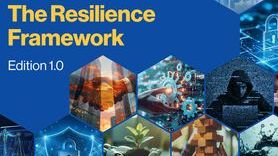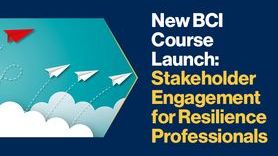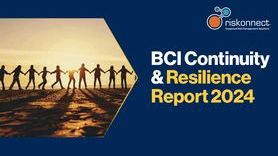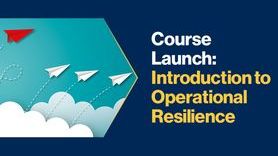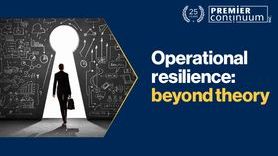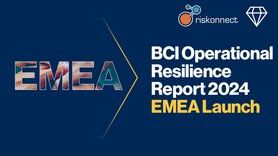Empowering Resilience: Insights, guidance, and success in business continuity
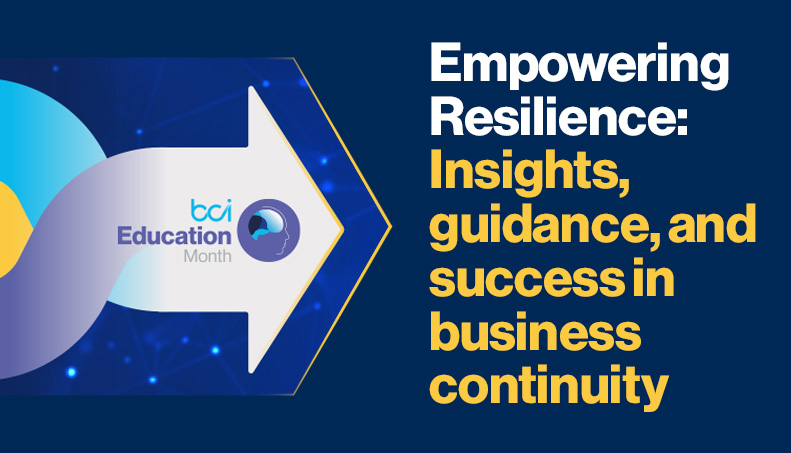
Week one of BCI Education Month 2024 kicked off with the launch of our latest research ‘A Career in Resilience Report 2024 followed by a series of interactive Lunch and Learn webinars.
This new style report delves into the careers of six well-respected business continuity and resilience professionals, uncovering how they entered the profession, their qualifications, experiences, and what ultimately drives them to succeed and enjoy a successful career in resilience.
Following this lively report launch, the BCI’s Knowledge Strategist, Rachael Elliott, hosted four interactive webinar sessions attended by a multi-industry global audience. The webinars aimed to boost practitioners’ knowledge by highlighting the latest findings and key learning points from BCI research reports over the past twelve months. They also gave the opportunity for professionals to share tips and insights via a Slido deck and ask topic-specific questions which gave rise to constructive discussions.
Webinar highlights:
Cyber resilience
In this first webinar of the series, the presentation and discussion were focused around the BCI Update Series: Cyber Resilience Report 2024. The key topics for discussion included the main cyber landscape threats faced by organizations and how insurance uptake has increased over the past twelve months.
Attendees shared their knowledge with just some of the many insights recommending tactics such as simulations, posters, tabletop exercises, mandatory training, intranet announcements, reminders from IT, and microsimulations for time-pressed top management to ensure staff training on cyber resilience. Attendees also shared useful resources such as governmental cyber security training links, the BCI’s cyber resilience special interest group, and local Chapters as some of the networking opportunities available.
Crisis Communications
The second webinar in the series focused on the findings of the BCI Emergency & Crisis Communications Report 2024 which sparked lively discussions about current methods of emergency communications. Highlights drawn from BCI research indicated the use of tablets, laptops, and desk phones is waning, and there has been a significant rise in the use of virtual crisis rooms, mirroring the rise in remote working practices.
This session’s quiz found that attendees still use a wide range of communication forms including Whatsapp, mobile phones, Teams, pagers, remote work trackers, and tannoys to communicate with staff in an emergency. As per BCI research, no attendee mentioned desk phones. Top tips from this session highlighted privacy and security issues around communication apps such as Whatsapp and the difficulties of contacting university students, due to the wide variety of communications they use.
Operational resilience
Operational resilience was the topic of the third session, with the findings from the BCI Operational Resilience Report 2024 as the webinar’s focus. There was much discussion around incoming rules and regulations, especially pertinent as new regulations become mandatory in 2025. BCI research shows that majority of organizations have an operational resilience programme in place. The top reason for this is regulatory requirements
Attendees contributed views including the reasons why they followed an operational resilience plan, despite not requiring one. Best practice, customer need, incoming/future regulation, audit requirements, to gain a consistent approach across groups in organizations, to ensure profitability, and garnering a ‘bird’s eye view’ of the organization were just some of the suggestions.
This webinar coincided with the launch of the BCI’s new Introduction to Operational Resilience course aimed at providing a comprehensive introduction to the key components of operational resilience.
Horizon scanning
Education’s month’s first week ended with the findings from BCI Horizon Scan Report 2023. This webinar examined its key findings and surveyed disruptive events experienced by the attendees so far this year.
Cyber incidents were the topmost mid-to-long term risk on practitioners’ minds, followed by climate risk, and supply chain issues in 2023, so it was interesting to discover that the webinar’s attendees reported IT incidents, cyber, and technical problems as their most experienced disruptive incidents so far this year. Other disruptions included civil unrest, supplier disruption, industrial action, fires, and changes in government policy or legislation, demonstrating a wide range of global threats experienced by organizations.
Attendees also discussed the ongoing risk of pandemics, regulatory changes, and AI deepfake training scenarios in the chat function.
Coming up next week
Join us for week 2 of education month where five one-hour long webinars presented by industry experts explore global approaches to business continuity training and exercising, plus the most sought after qualifications, and what organizations look for in a business continuity professional.









